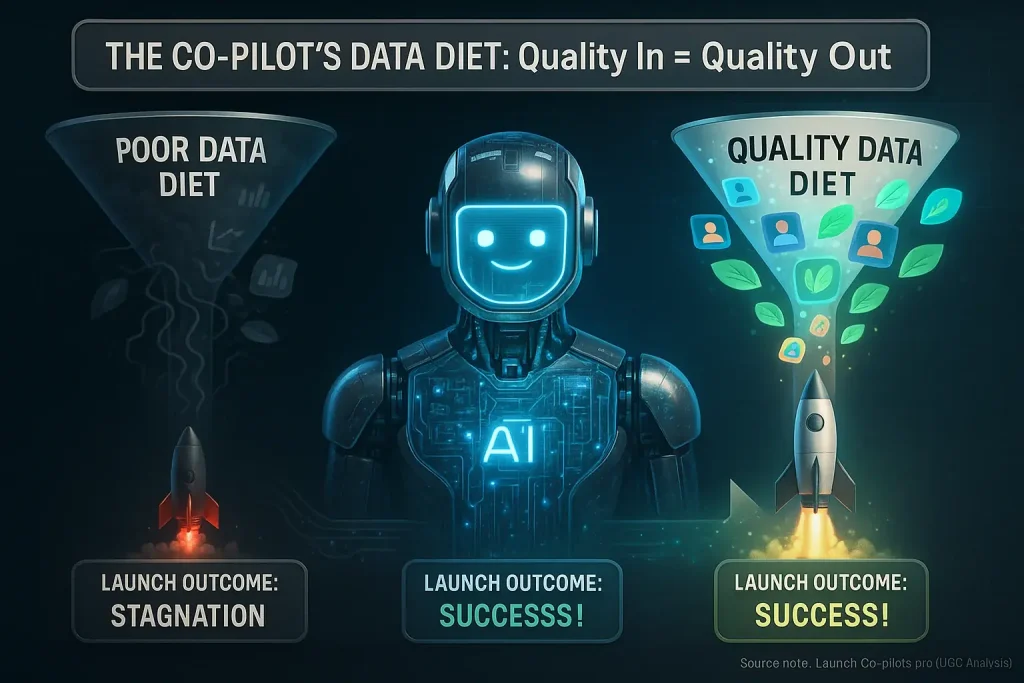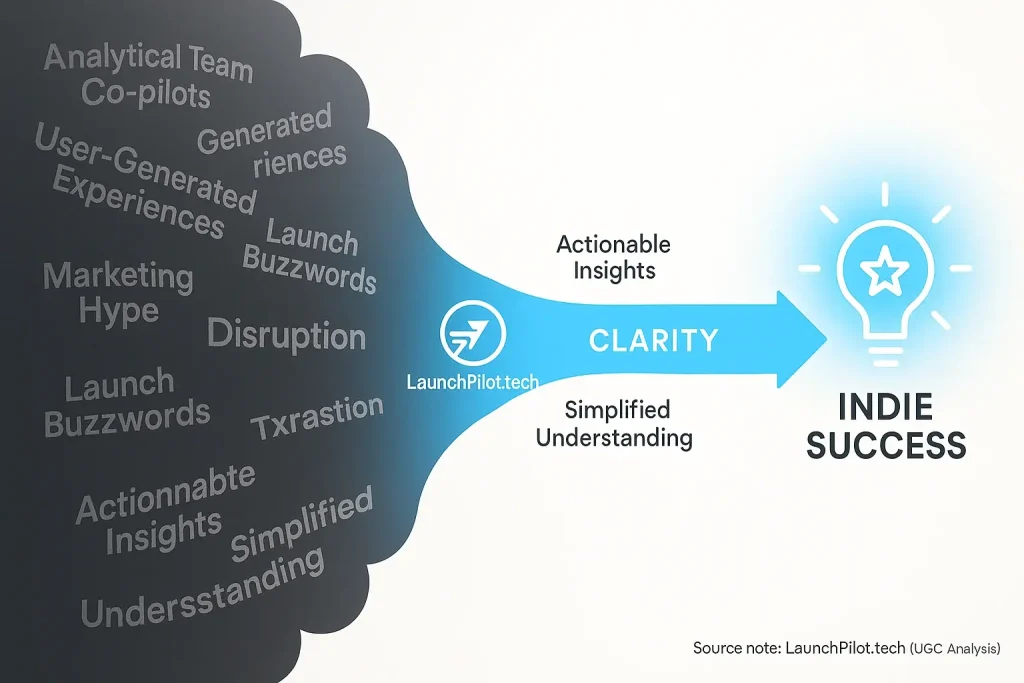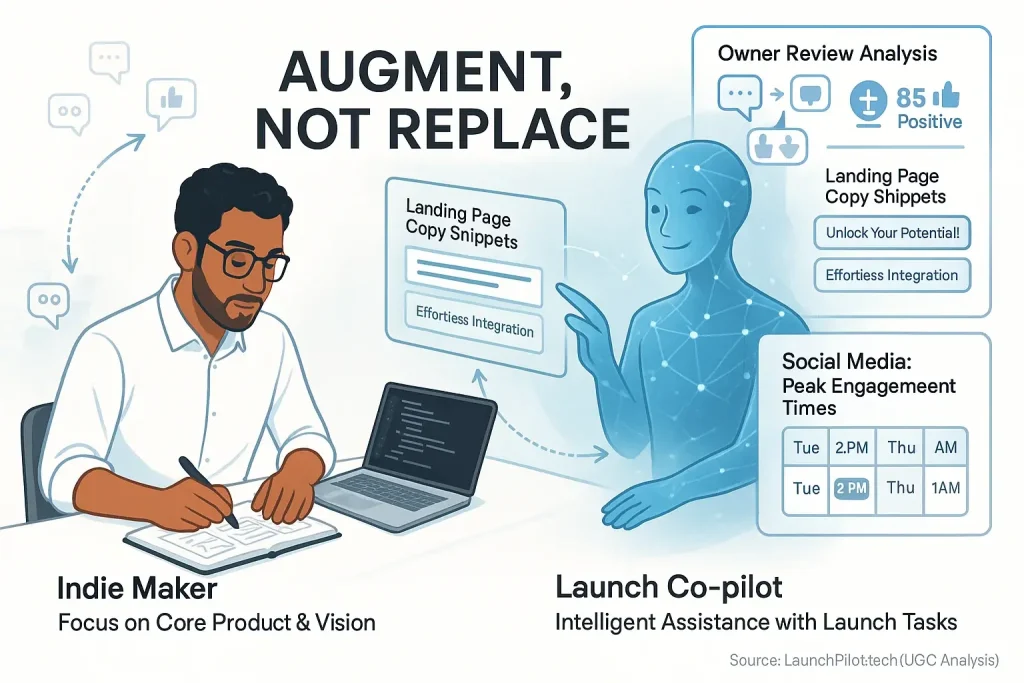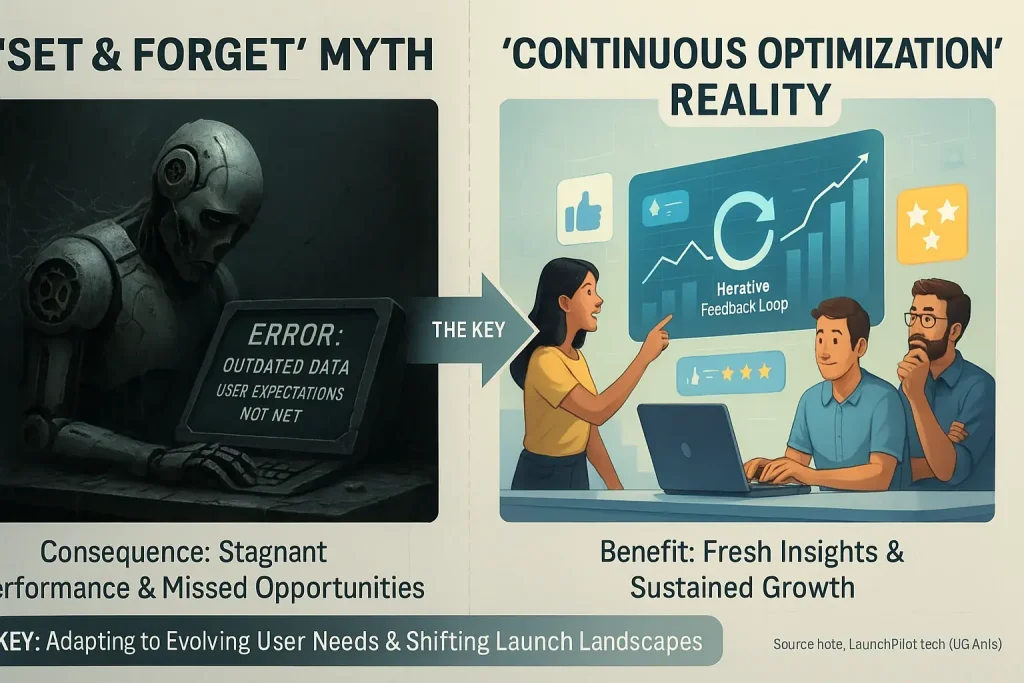The Counter-Intuitive Truth: Too Much AI Automation Can Actually Hurt Your Indie Launch
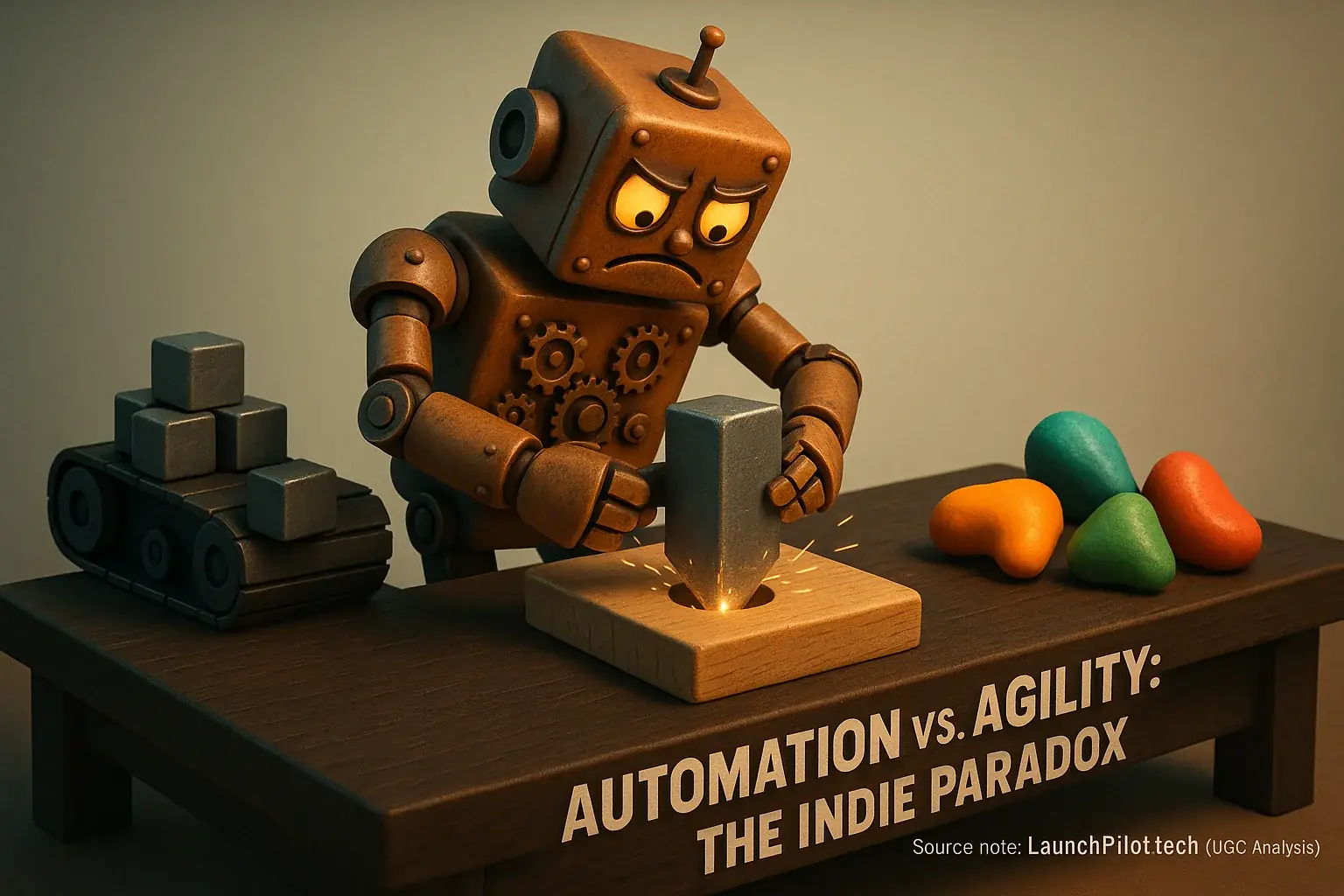
We all chase efficiency. Right? But what if the very review content automation meant to speed your launch actually slows your ability to adapt? Or worse, strips your unique spark? Many indie makers discover this counter-intuitive problem. Our analysis of user discussions reveals a surprising pattern: while automation is tempting, it carries hidden risks for indie projects when overdone.
The unspoken truth? Pushing for total feedback analysis automation can severely limit strategic flexibility. Many indie makers, eager to save precious time, automate entire content funnels or ad campaigns. Then, a market shift happens. User feedback urgently points to a new direction. Suddenly, changing course feels like steering a supertanker with a paddle. Slow. Clunky. Frustrating. Agility is an indie superpower; rigid automated systems can steal it, a common pain point observed across extensive user discussions.
This over-reliance on automation might also stifle your creative spark. It can lead to generic, uninspired outputs. The real danger? Your unique brand voice gets lost in the algorithmic noise. This challenge is a common, yet often unacknowledged, frustration we see in indie maker feedback. It truly deserves a closer look for any indie aiming to launch effectively.
When Your AI Co-pilot Becomes a Straightjacket: The Loss of Strategic Flexibility
Excessive automation promises speed. This is a common belief. But our rigorous examination of aggregated user experiences reveals a paradox. This automation can trap indie makers. Workflows become dangerously rigid. Imagine you've built a beautiful, automated assembly line for your product launch. Every cog turns perfectly. But then, the market demands a completely different product, or a key feature bombs. That 'perfect' assembly line? It just became a strategic straightjacket, hindering your ability to pivot.
User stories consistently highlight this painful reality. Many indie makers invest heavily. They automate social media posts. Email sequences run on autopilot. Ad creatives are system-generated. Then, a competitor makes a surprise move. Or a major platform shifts its rules overnight. Suddenly, their 'set-and-forget' automation churns out useless, even damaging, content. Manually untangling that complex web? Users report it feels like dismantling a skyscraper with a tiny screwdriver. Strategic flexibility vanishes.
So, why does this inflexibility happen? Collective wisdom from the indie launch community points to a fundamental issue. Many data feedback models learn from historical data. This makes them less agile. Sudden market shifts or truly novel user feedback can stump these systems. They require significant re-training. That costs precious time. Indie makers often win through speed and adaptability. Over-automation, ironically, can erode this core advantage, stifling indie agility when market pivots are essential.
The outcome is predictable. Indie makers express deep frustration. Their automated co-pilot, meant to help, actively resists necessary course corrections. This inflexibility becomes a serious burden when quick responses are paramount.
The AI Echo Chamber: When Over-Automation Stifles Creativity & Dehumanizes Your Brand's Voice
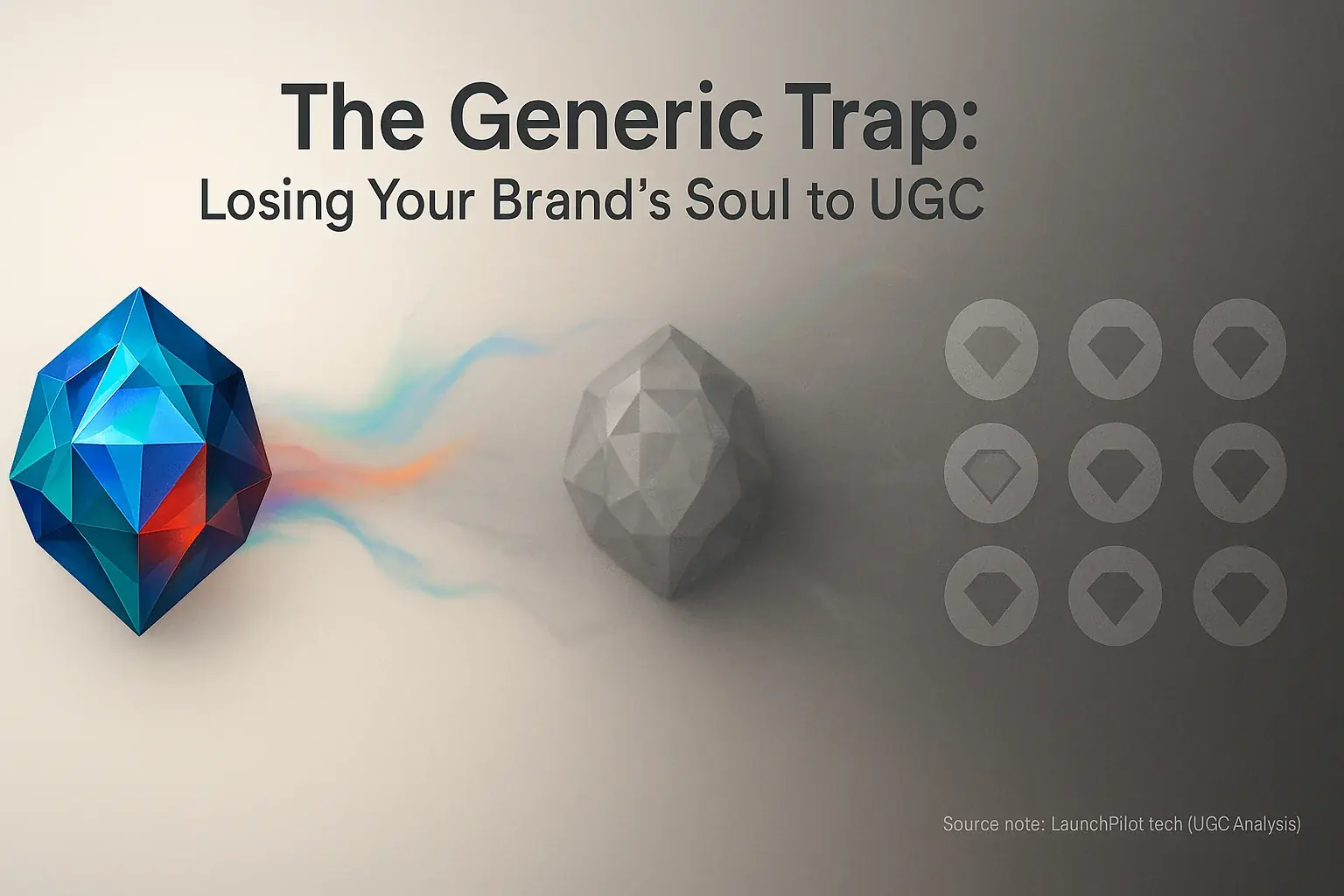
Beyond flexibility, there's a deeper, more existential risk for indie makers: the slow erosion of your unique brand voice. Automated content tools can promise speed. But their nature frequently optimizes for common patterns, not unique sparks. This leads to sameness. Your message risks blending into a sea of generic output, a concern widely echoed in indie communities.
Indie maker experiences frequently highlight a familiar pattern with automated content. Initial excitement over swift generation often meets a harsh reality. User feedback starts rolling in. "It just sounds… generic." "Where’s your voice?" The content, while technically correct, frequently lacks something vital. It misses the spark, the personality, the very soul of the indie brand, as countless user discussions reveal.
This "echo chamber" effect is a real concern reported by users. Our analysis of community feedback indicates these systems learn from vast online data. If fed primarily common inputs, they produce predictably common outputs. Originality gets diluted. True creativity, many makers find, stems from human intuition. It thrives on unexpected connections that current automation struggles to replicate authentically, a sentiment consistently voiced in maker forums.
Brand authenticity needs you. Human oversight remains critical for genuine connection. Your touch matters.
Interactive Tool: Find Your AI Automation Sweet Spot (Balance Flexibility & Efficiency)
Assess Your AI Automation Balance
Where do you stand on the automation spectrum for your indie launch tasks? Be honest!
So, you've assessed your automation balance. What do these results actually tell you? Your score isn't just a number; it is a vital compass. This compass points to potential over-automation, or where you can strategically embrace our process and keep your indie edge.
Use this insight to fine-tune your owner discussions strategy. Remember the real objective. The goal isn't 'more feedback feedback'. It is 'smarter user-generated indicates'—the kind that truly amplifies your indie genius, not replaces it.
